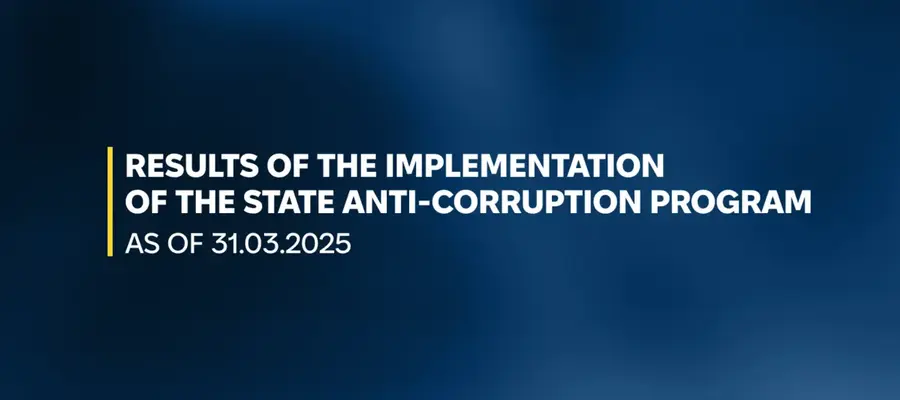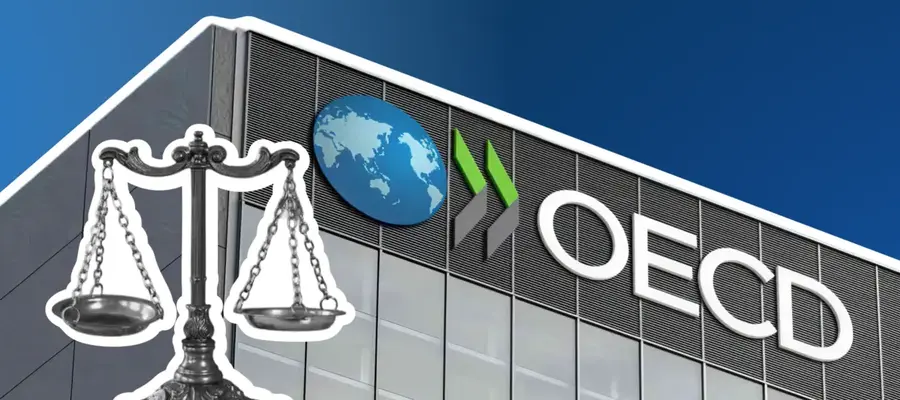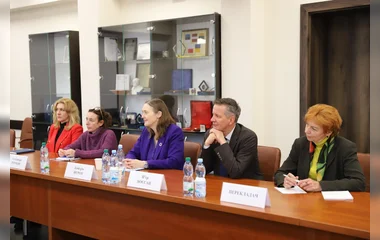The National Agency on Corruption Prevention (NACP) has completed its eighth quarterly monitoring of the implementation of measures under the State Anti-Corruption Programme for 2023–2025 (SACP).
As of the end of the first quarter of 2025, state bodies have fully or partially implemented 486 of the 1,146 measures of the SACP (42.4%), are implementing 261 measures (22.8%), have not implemented 111 measures (9.6%), and have not started implementing 288 measures (25.3%).
Key anti-corruption measures implemented relate to the accessibility and publicity of information on mass land valuation, the digitisation of tax processes and the improvement of academic integrity in the defence of dissertations.
1. Introduction of a geoinformation system for mass land valuation as part of the State Land Cadastre
What has been done?
- Automation of the process of conducting and updating mass land valuation has been ensured.
- Users authorised through the electronic office on the official website of the State Land Cadastre are now able to search, view, copy and print the results of mass land valuation published on the official website of the State Land Cadastre free of charge.
The system ensures regular updates of information on land values and factors affecting them, as well as the public availability of information on the results of mass land valuation.
This is a measure of the State Action Plan 2.5.5.1.6. Implementers: Ministry of Agrarian Policy and Food of Ukraine and State Service of Ukraine for Geodesy, Cartography and Cadastre.
2. Integration of the taxpayer's account into the Single State Web Portal of Electronic Services
What has been done?
Electronic information exchange between the Single State Web Portal of Electronic Services and the taxpayer's account has been ensured in terms of providing citizens and businesses with the following electronic services:
- display of information (data) on the taxpayer's registration number (in the mobile application ‘Dіya’);
- submission of declarations by single tax payers who are individual entrepreneurs in groups 1-3 (more than 301,000 declarations have already been submitted);
- payment of taxes (payment of single tax, payment of single social contribution, payment of military tax);
- display of information about the taxpayer and the status of their settlements with the budget;
- obtaining a certificate from the State Register of Individuals on income paid and taxes withheld from it. A total of over one million certificates have been received.
- obtaining a tax number (registration number of the taxpayer's account card) for a child (within the e-Malyatko system);
- acquisition and cancellation of electronic resident status (hereinafter referred to as e-resident) by a foreigner, registration of an e-resident as an individual entrepreneur;
- making changes to the individual entrepreneur (within the e-Entrepreneur system);
- verification of compliance of legal entities and individual entrepreneurs joining the pilot project on providing state financial assistance to buyers of Ukrainian-made goods and services within the All-Ukrainian Economic Platform ‘Made in Ukraine’ as Ukrainian sellers with the requirements of not being on the simplified taxation system, etc.
The implementation of this measure will simplify the processes of submitting and receiving documents for citizens and businesses, as well as reduce their contacts with officials. As a result, corruption risks will be minimised.
This is a measure of the State Agency for Digital Transformation 2.2.3.5.2. Implementers: Ministry of Digital Transformation of Ukraine and State Tax Service of Ukraine.
3. Updating the information system of the National Agency for Quality Assurance in Higher Education ‘NAQA.Svr’ regarding the composition and activities of ad hoc specialised academic councils
A one-time specialised academic council is a specialised academic council formed by a decision of the Ministry of Education and Science, formalised by a corresponding order, which has the right to accept for consideration and conduct a one-time defence of a candidate's dissertation.
What has been done?
- Four new data blocks have been added to the form for notification of the establishment of a one-time council (the name and ID of the educational and scientific programme from the Unified State Electronic Database on Education; the start and end dates of the applicant's studies; the applicant's gender and the date of completion of the previous level of education, ISSN/eISSN for publications in Web of Science and Scopus).
- The section on the one-time council now includes the exact dates of the academic council's decision and the order for its implementation, as well as the automatic generation of a unique council code in the format ‘PhD 0000’.
- Scientific and pedagogical workers, students, or other stakeholders can now submit notifications about possible inconsistencies in the composition of a one-time specialised academic council through the system.
- Data entered by the user when filling out the notification form about the formation of a one-time council is automatically saved.
These additions will ensure the detail and integrity of data, reducing the risk of manipulation and ‘schemes’ during the defence of dissertations. Automatic saving of the information entered minimises the human factor and speeds up the verification of applications, promoting transparency of procedures and increasing trust in the higher education quality assurance system.
This is a measure of the SACP 2.7.5.2.4. Implementers: National Agency for Higher Education Quality Assurance, Ministry of Education and Science of Ukraine.
We remind you that the progress of the SACP measures can be tracked in the Information System for Monitoring the Implementation of the State Anti-Corruption Policy.









